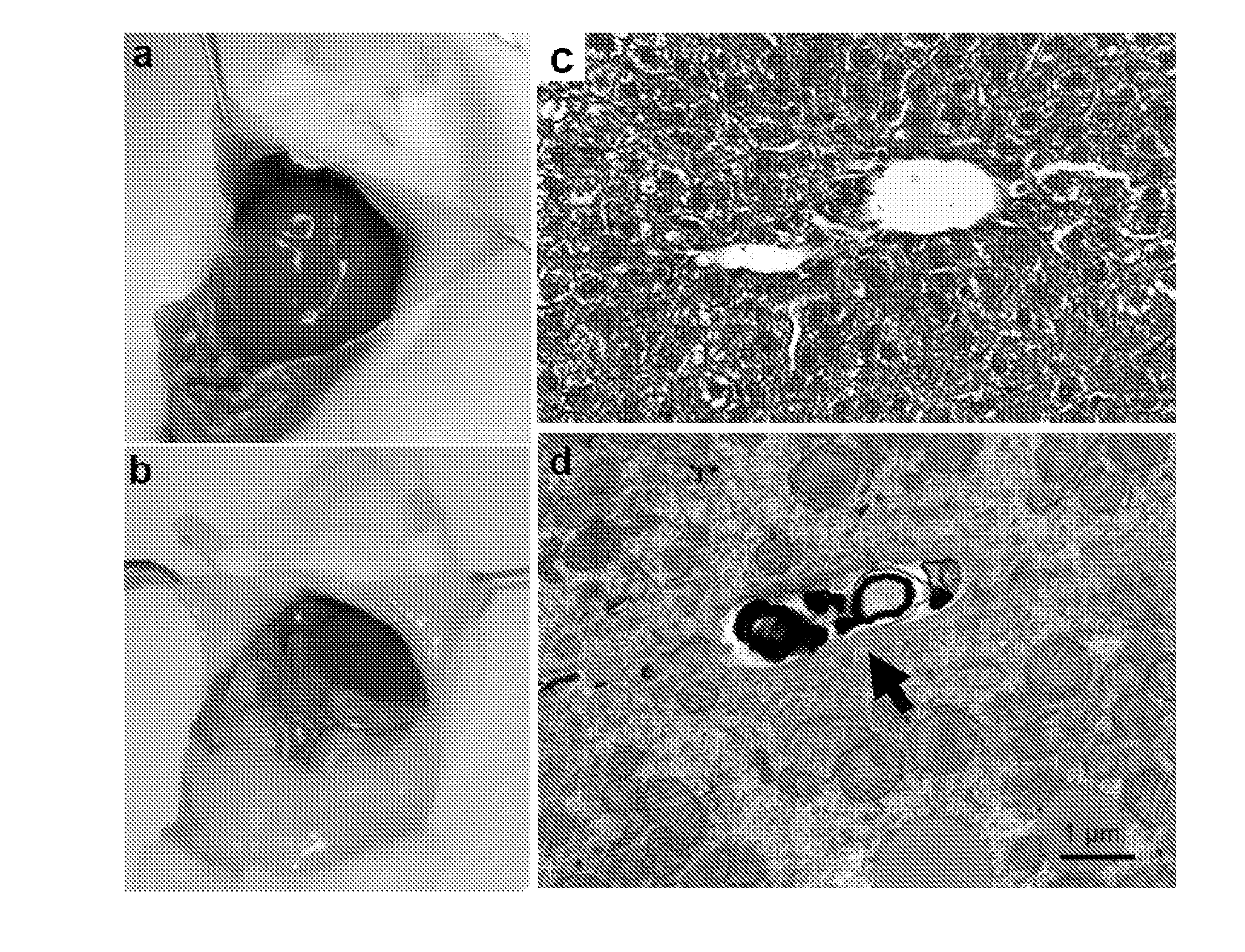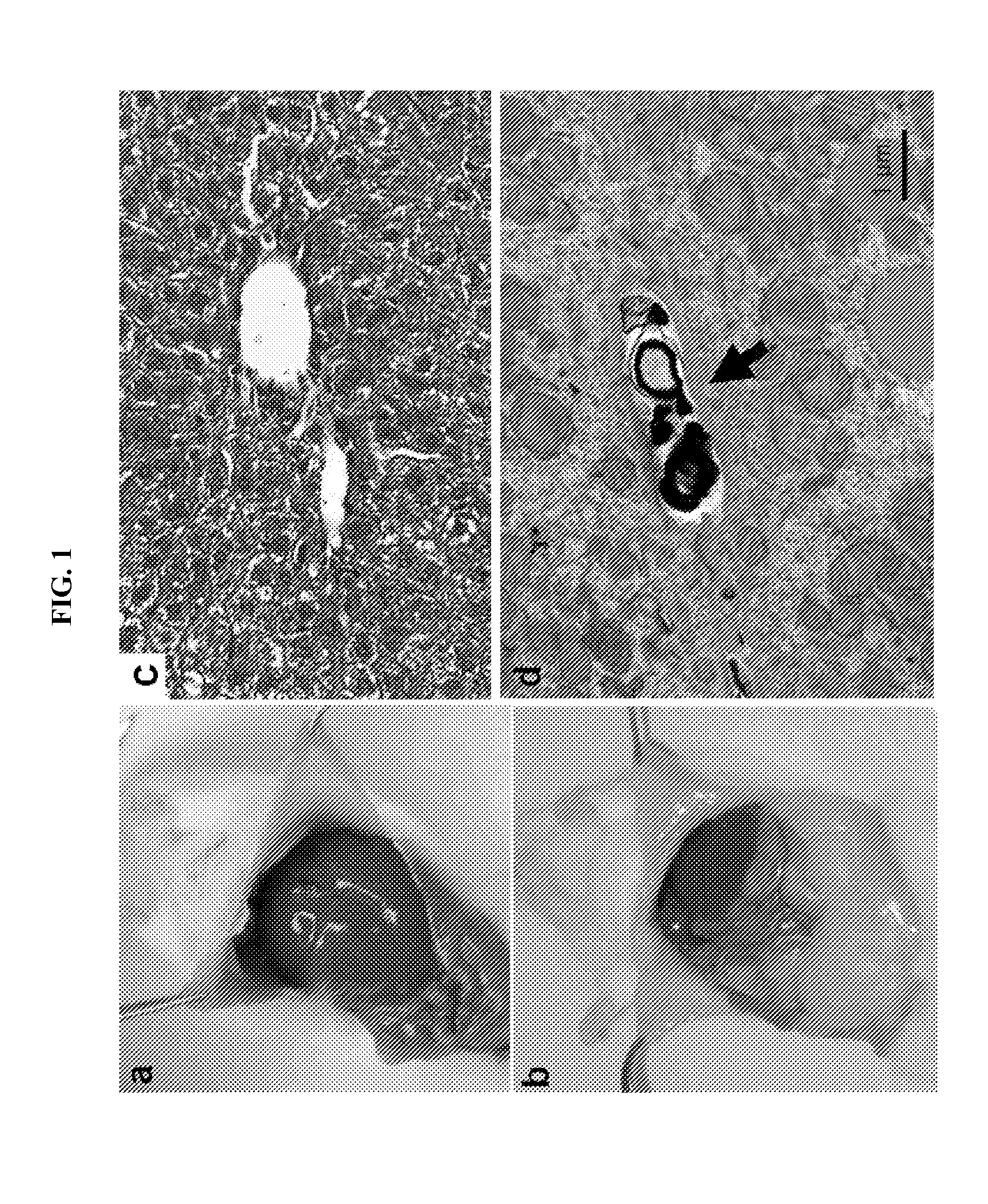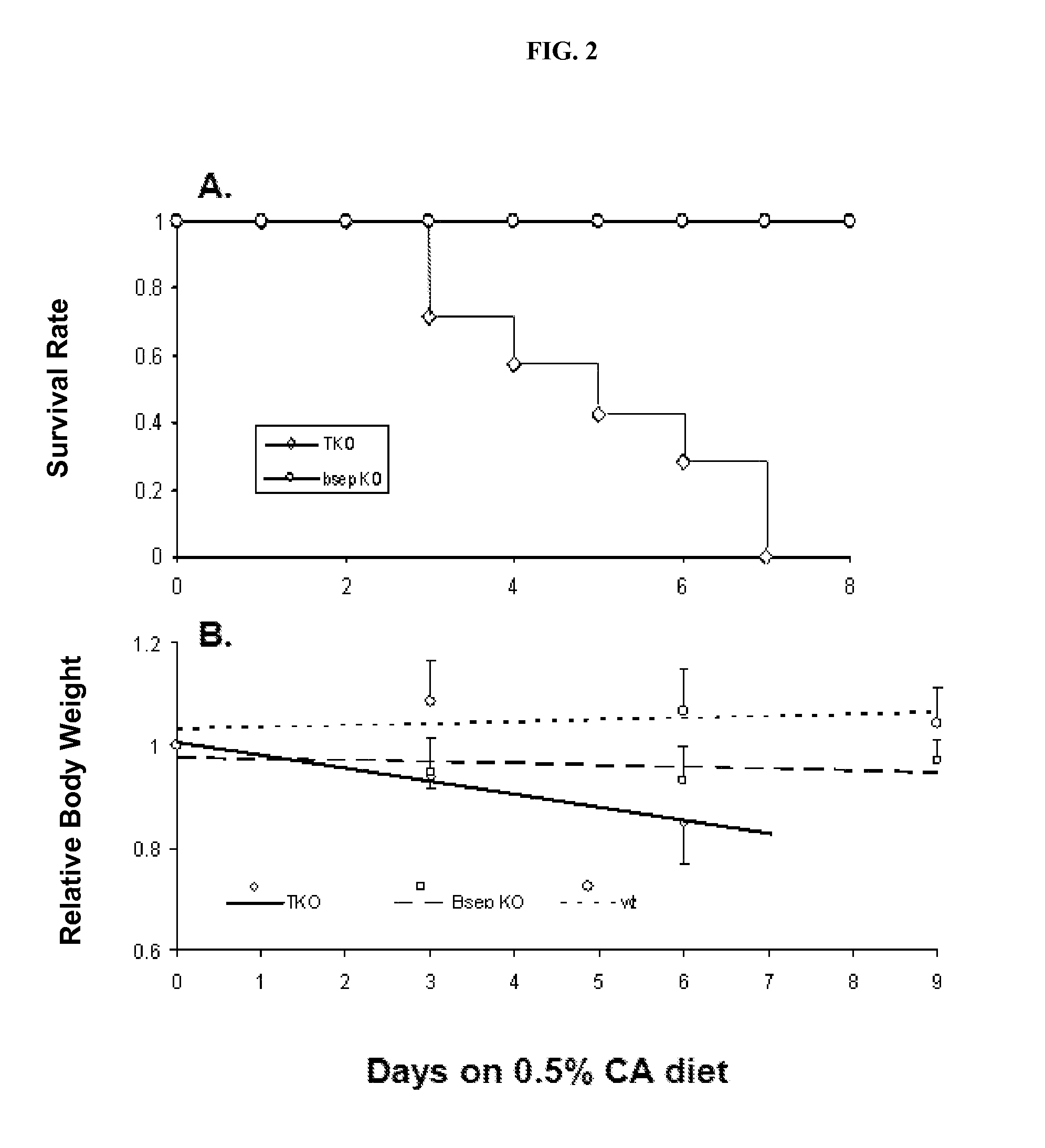Polyhydroxylated bile acids for treatment of biliary disorders
a biliary disorder and polyhydroxylated bile technology, applied in the direction of biocide, plant growth regulator, pharmaceutical non-active ingredients, etc., can solve the problems of detergent effects, liver damage, rate-limiting step of bile formation, etc., and achieve the effect of high affinity for mdr1
- Summary
- Abstract
- Description
- Claims
- Application Information
AI Technical Summary
Benefits of technology
Problems solved by technology
Method used
Image
Examples
example 1
[0097]Methods
[0098]Animals
[0099]As described previously, the bsep KO mice on an FVB / NJ genetic background (16) were maintained in this laboratory and mdr1a / 1b KO mice (22) were from Taconic (Hudson, N.Y. 12534). Mice were maintained in a 12-hour light and dark cycle, at 22° C., with free access to food and water. The mice were fed a normal diet except where specified otherwise in the results. Experiments were performed using approved protocols of the Committee on Animal Care, University of British Columbia, according to the guidelines of the Canadian Council on Animal Care.
[0100]Light and Transmission Electron Microscopy
[0101]For light microscopy, mice were killed with CO2 after 2-4 hours of fasting. Livers were immediately removed and transferred into 10% neutral buffered formalin followed by paraffin sectioning and hematoxylin-eosin staining or Masson trichrome staining (Wax-it Histology Services Inc, Vancouver). For transmission electron microscopy, li...
example 2
Synthesis of taurine-conjugated 3α,6β,7β,12α-hydroxy bile acid
[0117]A taurine-conjugated 3α,6β,7β,12α-hydroxy bile acid, essentially a 12α-hydroxylated version of β-muricholate, was synthesised as set out in (29-31). Isomers were produced simultaneously in the synthesis, and were likely to have similar activities. Therefore, at to least five additional derivatives, specifically 3α,6α,7α,12α-; 3α,6β,7α,12α-; 3α,6α,7β,12α-; 3α,6β,7β,12α-; 3α,6α,7α,12β-hydroxy derivatives of the above compound were also isolated. The isolated compounds were labeled using is 3H-labelling bile salts by hydrogen exchange in a solution of tritium-enriched water, followed by re-isolation of the labeled bile salt (a service available from Perkin-Elmer, for example) (32). The isolated compounds were tested for their relative affinities for transport via MDR1 in vitro, as described herein. The most efficacious compound in vitro was isolated in larger quantities and used as the lead compound for the in vivo tes...
example 3
Evaluation of Transport Kinetics and Interactions
[0120]The transport kinetics and interactions of compounds, produced as described herein, with their transporter MDR1, are evaluated in comparison to the widely used therapeutic bile acid ursodeoxycholate as well as taurocholate, the primary bile acid in humans and mice and 13-muricholate, a tri-hydroxy bile acid not normally found in humans. Membrane vesicle systems derived from CHO B30 cell membranes, a line of Chinese Hamster Ovary cells selected for its considerable amplification of the Mdr1 locus and corresponding drug resistance are used, as well as vesicles from the human SKOV series of cell lines, also selected for MDR1 overexpression. This experimental system is well established. Using this system ATP-dependent uptake of 3H-labeled bile acids into vesicles, either alone or in combination with interacting compounds such as taurocholate or ursodeoxycholate, is measured. Humans and rodents do not differ significantly in the drug...
PUM
 Login to View More
Login to View More Abstract
Description
Claims
Application Information
 Login to View More
Login to View More - R&D
- Intellectual Property
- Life Sciences
- Materials
- Tech Scout
- Unparalleled Data Quality
- Higher Quality Content
- 60% Fewer Hallucinations
Browse by: Latest US Patents, China's latest patents, Technical Efficacy Thesaurus, Application Domain, Technology Topic, Popular Technical Reports.
© 2025 PatSnap. All rights reserved.Legal|Privacy policy|Modern Slavery Act Transparency Statement|Sitemap|About US| Contact US: help@patsnap.com



